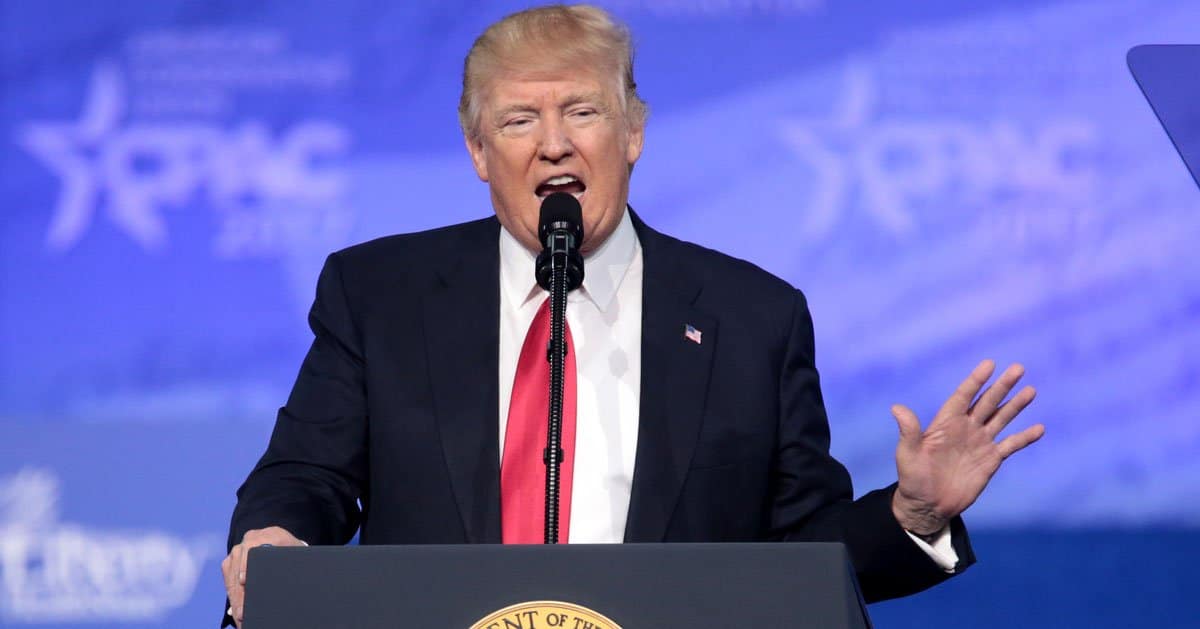








Pennsylvania voters were presented with a fresh angle from Democratic Senator Bob Casey, who introduced a campaign ad spotlighting his alignment with former President Donald Trump's trade policies, while also critiquing efforts from the Biden administration concerning fracking.
Fox News reported that the ad reflects a strategic move in a closely contested race against Republican Dave McCormick, as Casey is shunning association with the Biden-Harris administration in favor of currying favor with centrist Republicans by emphasizing his past work with Trump.
Senator Casey is engaged in a fierce battle for reelection for a fourth term, as Pennsylvania remains a tightly contested political landscape. Released Friday, Casey's new ad features a bipartisan couple lauding his independent approach, setting a unique tone by illustrating his departure from President Biden's policies.
In the commercial, Casey highlights his backing of Trump's trade policies, particularly focusing on the role he played in ending the North American Free Trade Agreement and applying tariffs on Chinese goods.
The message underlines efforts to protect Pennsylvania's fracking industry, counter to Biden’s policies. Casey added emphasis on his initiatives to curb corporate exploitation, labeling it as "greedflation."
The ad has attracted significant attention, with Casey himself appearing on screen to express endorsement for the message.
Public opinion polls continue to demonstrate a slim lead for Casey over challenger Dave McCormick, yet the Democrat's focus on Trump's agenda has raised eyebrows among Republicans.
Elizabeth Gregory, a spokesperson for McCormick, critiqued the ad as indicative of Casey's mounting election-related concerns. Criticism has extended to Casey's silence regarding Vice President Kamala Harris, as he notably did not attend recent nearby assemblies with her.
Republican sentiments have been echoed by GOP state Rep. Russ Diamond, who alleged Casey is distancing himself from Vice President Harris due to her declining approval ratings. This has not gone unnoticed by Trump’s camp, which commented on the contradiction of Casey’s past decisions to vote for Trump's impeachment.
Additional criticism arose when Wisconsin's Democratic Senator Tammy Baldwin was observed utilizing comparable language referencing Trump in her own campaign. This sparked further discourse on the broader influence of Trump’s policies in swing states.
Strong remarks have emerged from former Trump campaign official Tim Murtaugh, describing recent Democratic actions as a shift toward Trump's political doctrines due to perceived electoral threats.
He suggested this reflects a broader trend where key battleground states like Pennsylvania are leaning toward Republican platforms.
Kate Smart, a voice supporting Casey, countered by emphasizing Casey’s dedication to Pennsylvania, marking him as a politician unswayed by partisanship. She praised his steadfastness in opposing China and fighting against corporate price-gouging tactics.
The ad's release signals a pivotal moment for Senator Casey, as it reveals his calculated attempt to appeal across party lines in an otherwise polarized political arena. This has prompted reflective discourse among constituents about where their loyalty should lie.
Furthermore, Casey’s supporters underscore his role as an independent-minded leader in Pennsylvania, navigating complex political waters by aligning with moderate perspectives.
This tactic is being scrutinized, especially as public attention increasingly veers toward the upcoming election cycle.
Despite the critiques, Casey's campaign strategy represents a noteworthy effort to blend traditional Democratic support with elements appealing to conservative voters. As November looms, both his advocates and critics keenly await the electoral outcome that could reflect a realignment of political priorities in Pennsylvania.
With Senator Casey's focus on Trump-linked policies standing at the forefront, speculation continues on how this will impact voter sentiment amid broader discussions about essential state and national issues.



